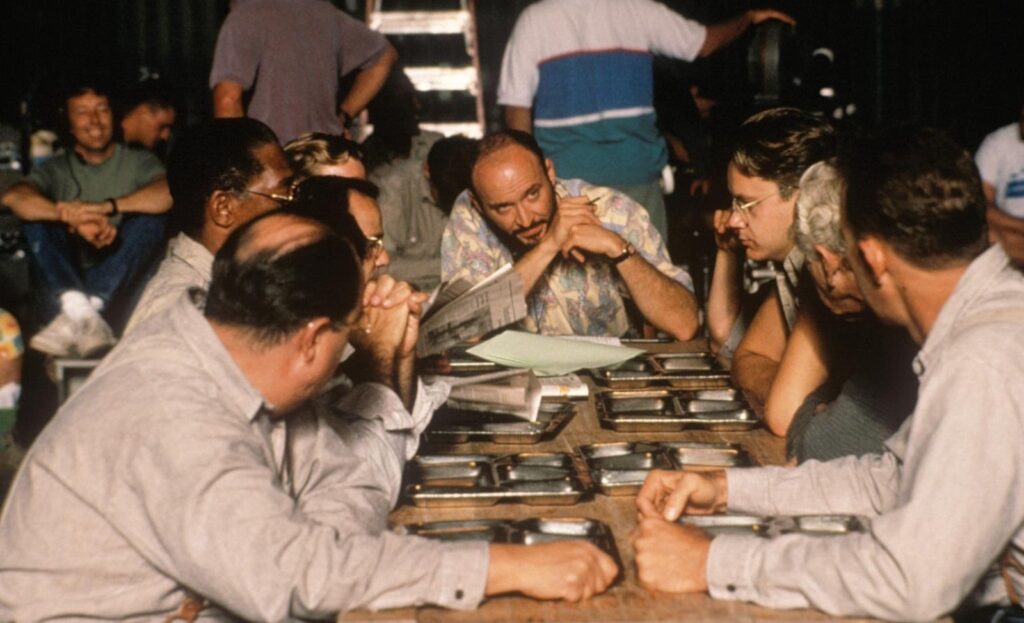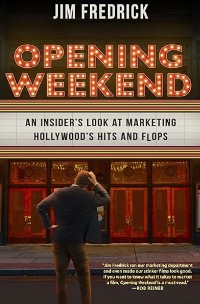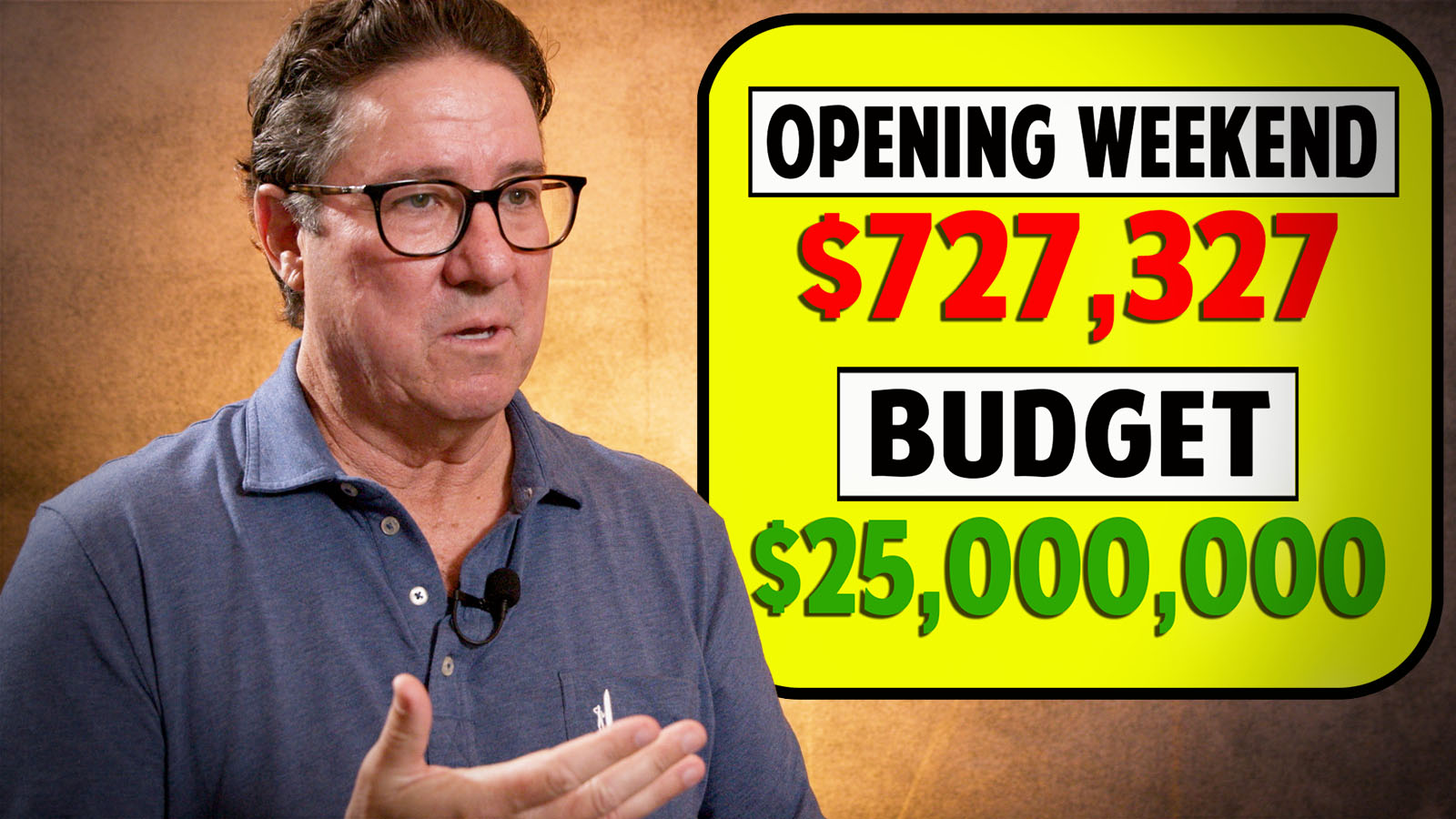[Watch the video interview on YouTube here]
Film Courage: Jim, did you ever worry that you would be fired if a movie did not go well?
Jim Fredrick, Author/Editor/Professor At Chapman University Dodge College: Absolutely, absolutely. It’s usually the marketing side that tends to take a lot of the brunt when a film doesn’t open, which I find kind of ironic. It’s not the people that made the actual product it’s the people who are marketing it who are usually the first on the guillotine and it’s usually the head of marketing.
If you’ve had a series of movies that haven’t done well, I had a pretty very long career at the studio side. Ten years with Castle Rock [Entertainment] and 11 years at Warner Brothers so I had a lot of insight into the 22 years I worked for a movie studio. No movie studio goes through a year with a 100% success record. It’s a very cyclical business in general.
Some years you’re lucky where you get movies that just happen to connect with the audience which is great. Other years, I remember Warner Brothers, we had a series of movies that just were not doing well and everybody in the marketing department in particular just started kind of whispering to each other, the bosses We really need to make this next one a hit! Whether it was a good movie or a bad movie, the pressure is first of all to open all movies, it’s an impossibility again some films have more marketable elements than others.
The case study I use is The Shawshank Redemption which is a beloved film today. I mean number one on IMDb is the most popular film for years. The playability of The Shawshank Redemption was always sensational. When people saw it, they loved it.
Consequently we did not open that movie. That was at Castle Rock. It was a platform release which means it was only in 33 theaters to begin with. The per screen average of those 33 films which were predominantly in New York and LA and Toronto and Seattle and major cities.

The initial performance was not good. That movie had a lot to overcome from a marketing standpoint. Its marketability was challenging. We didn’t have big stars. Morgan Freeman was not a big star. Tim Robbins was not a big star. We had a first-time director who also wrote the screenplay so we couldn’t bank on Frank Darabont. The whole movie virtually takes place in a prison. It’s very dark, it’s very claustrophobic. It can’t be very depressing. It was extremely violent.
There was only one female character in the whole film and she was on screen in not the most pleasant way for about 30 seconds. We also had a title that was tough. The title was ultimately blamed for the lack of opening. People didn’t know what a shawshank was. It was based on a Stephen King book [Rita Hayworth and Shawshank Redemption, 1982]. Well, Jim, why didn’t you use Stephen King’s name? Well Stephen King was noted for being a horrormeister and still is and still is the man there but The Shawshank Redemption as most people know you would probably not call the genre horror was more of a thriller, certainly a drama.
These are just some of the many many issues we had to overcome with this case study of The Shawshank Redemption. Back to your original question, so after that didn’t open when you had a great movie to work with yeah the thoughts of losing your job are very real. Blame and credit are two incredibly huge commodities in Hollywood. Certainly money is too. But I have found that in the studio world people want to be the white knight, they want to ride in to save the day…(Watch the video interview on YouTube here).
About:
After starting his career in 1983 as a trailer editor and producer at famed advertising boutique Intralink, Jim Fredrick went on to serve as president of marketing at Castle Rock Entertainment, senior vice president of creative advertising at Warner Bros. and executive vice president of marketing at Sony Screen Gems. In 2011, he founded his own company, Jim Fredrick Motion Picture Marketing. Across a span of 35 years, Fredrick’s roles as a trailer maker and studio executive allowed him to craft advertising campaigns for a range of movies, from such iconic cinematic gems as The Shawshank Redemption to the widely beloved Harry Potter franchise. He has helped produce more than 196 film marketing campaigns. His memoir, Opening Weekend, explores the intricacies of the lesser-known business of film distribution and marketing, unraveling the complex mechanisms through which movies are sold to discriminating audiences. Replete with triumphs, setbacks, and the relentless spirit that drives the creation and promotion of cinematic masterpieces, Opening Weekend promises an enthralling glimpse into the previously untold world of Hollywood movies.
CONNECT WITH JIM FREDRICK
Chapman.edu/our-faculty/jim-fredrick

BUY THE BOOK – OPENING WEEKEND: An Insider’s Look at Marketing Hollywood’s Hits and Flops
Advertisement – contains affiliate links:

More affiliates:
Camera we use for interviews – https://buff.ly/3rWqrra
Sound we use for interviews – https://amzn.to/2tbFlM9
Other books on Amazon that Film Courage recommends – https://buff.ly/3o0oE5o



























